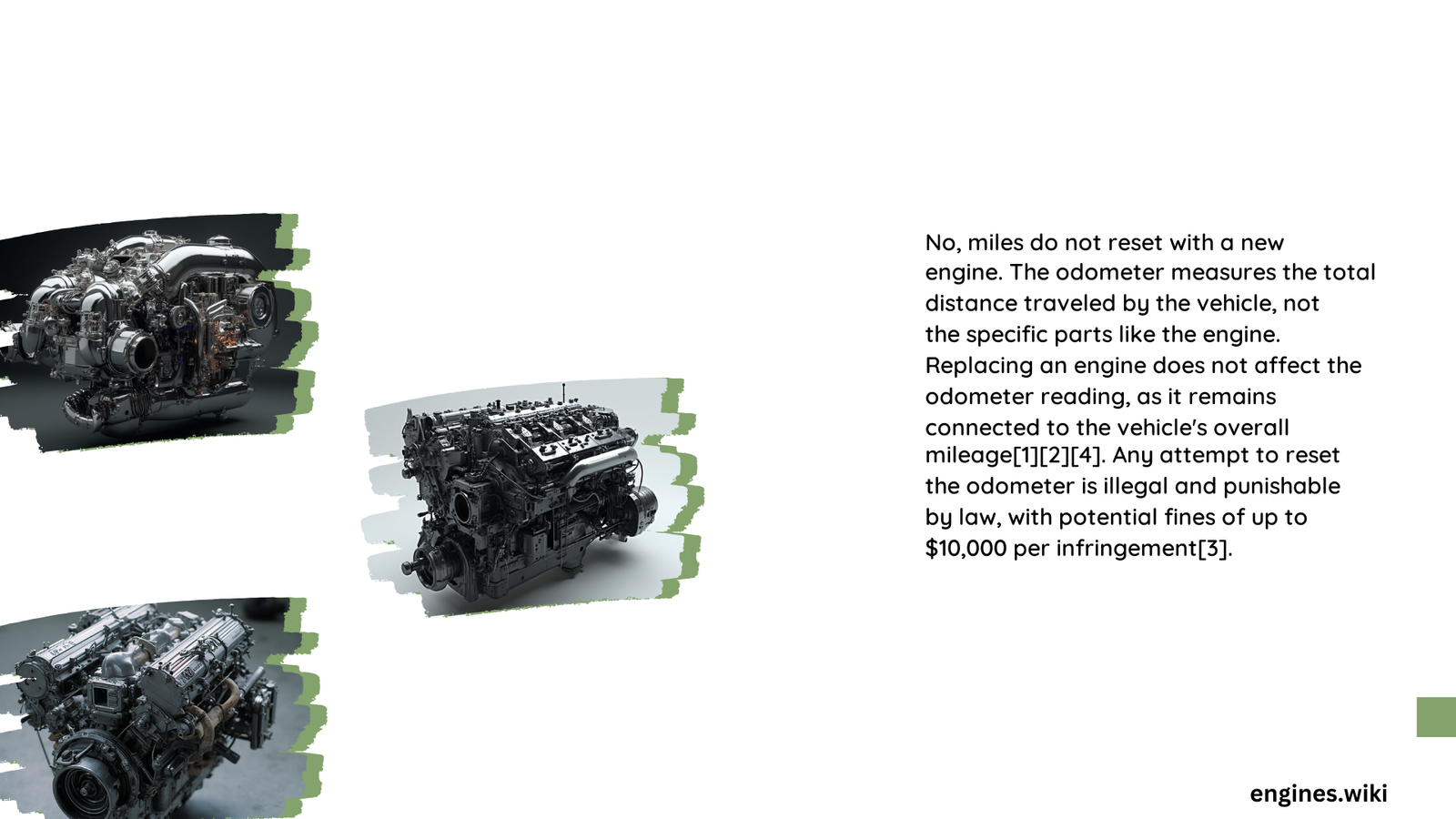When a vehicle undergoes an engine replacement, many car owners wonder about the impact on their vehicle’s mileage. Contrary to popular belief, installing a new engine does not reset the odometer. The miles accumulated by the vehicle remain unchanged, as the odometer tracks the total distance traveled by the vehicle, independent of the engine’s condition or replacement.
What Happens to Vehicle Mileage During Engine Replacement?
Can the Odometer Reading Change Automatically?
The odometer is a mechanical or digital device connected to the vehicle’s transmission or wheel hub, not the engine. When an engine is replaced, the following key points are crucial:
- Odometer Continuity: The mileage reading remains constant
- Legal Considerations: Attempting to reset mileage is illegal
- Technical Mechanism: Odometer tracks vehicle movement, not engine status
How Do Mechanics Handle Mileage During Engine Swap?
Mechanics follow strict protocols when replacing an engine:
- Documentation: Record the existing mileage
- Preservation: Maintain original odometer reading
- Transparency: Disclose engine replacement in vehicle history
| Scenario | Odometer Action | Legal Status |
|---|---|---|
| New Engine | No Reset | Compliant |
| Rebuilt Engine | No Change | Permitted |
| Intentional Reset | Illegal | Punishable |
What Are the Legal Implications of Odometer Manipulation?
Vehicle owners must understand the serious consequences of odometer tampering:
- Federal Penalties: Fines up to $10,000 per violation
- Criminal Charges: Potential prosecution for fraud
- Insurance Risks: Policy cancellation or claim denial
Why Does the Odometer Remain Unchanged?
The odometer’s primary function is tracking total vehicle distance, which is independent of:
- Engine type
- Engine condition
- Replacement frequency
How to Properly Document Engine Replacement?
Recommended documentation practices include:
- Maintaining service records
- Noting engine replacement date
- Keeping original mileage documentation
- Reporting changes to vehicle history services
What Should Vehicle Owners Know About Mileage and Engine Swaps?
Key takeaways for car owners:
- Engine replacement does not reset miles
- Transparency is crucial during vehicle maintenance
- Professional documentation protects vehicle value
- Odometer reading reflects total vehicle history
Technical Insights into Odometer Mechanisms
Modern vehicles use sophisticated tracking systems:
- Digital odometers with permanent memory
- Electronic control units (ECUs) that preserve mileage data
- Integrated systems preventing unauthorized resets
Conclusion

An engine replacement is a significant maintenance procedure that does not alter the vehicle’s accumulated miles. Vehicle owners should prioritize proper documentation, legal compliance, and transparent maintenance practices.
Expert Tips
- Always work with certified mechanics
- Maintain comprehensive service records
- Understand your vehicle’s technical specifications
- Consult local automotive regulations
Potential Misconceptions
- Myth: New engine means reset mileage
- Reality: Mileage continues uninterrupted
- Recommendation: Treat engine swap as routine maintenance
Reference:
– Car From Japan
– Super Kilometer Filter
– National Highway Traffic Safety Administration
– Federal Trade Commission Guidelines
